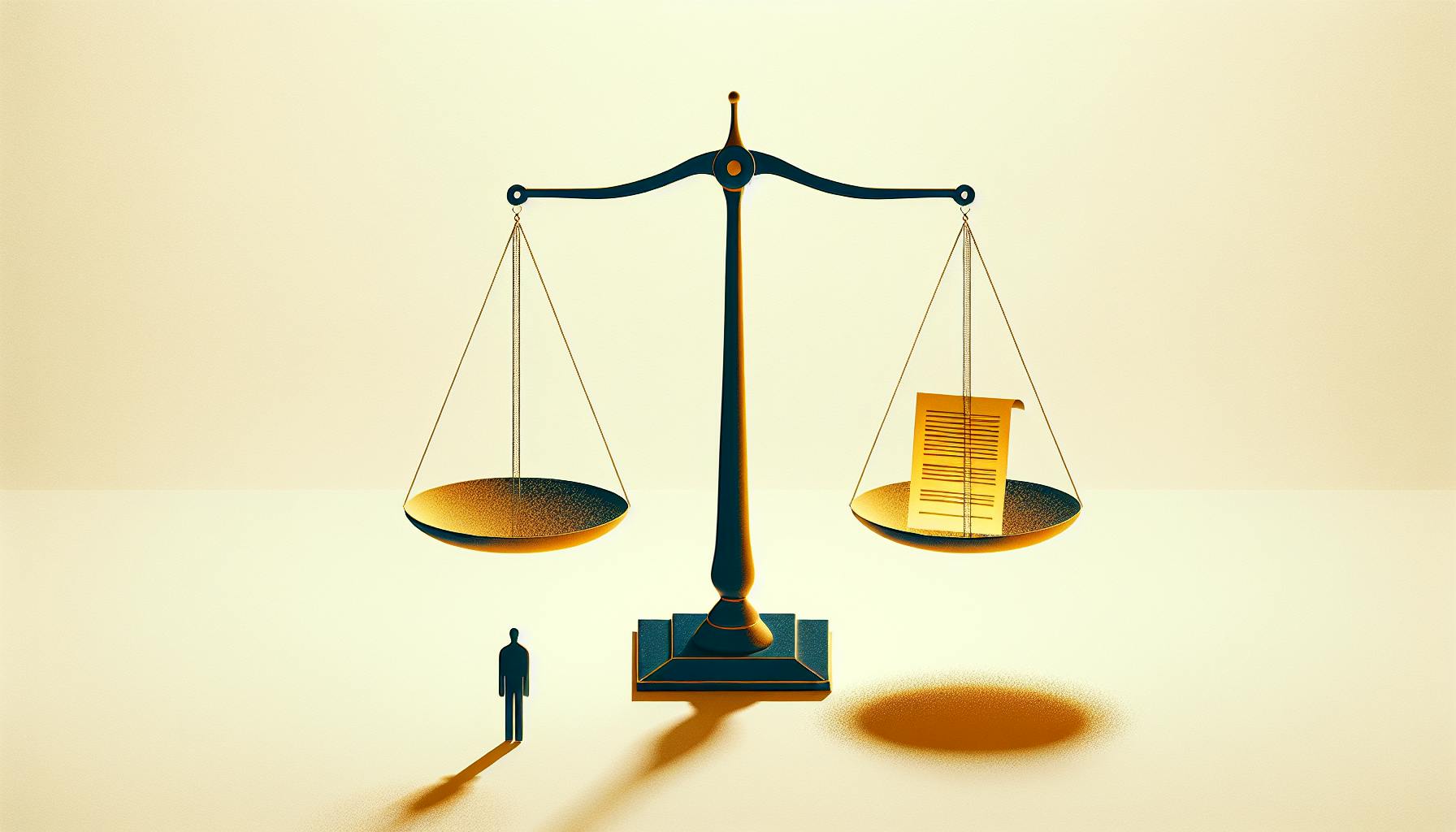Readers likely agree that extremist ideologies which advocate violence are concerning.
This article provides an in-depth, non-judgmental look at Ted Kaczynski's ideology and court case to further understanding without promoting harmful beliefs.
Introduction to the Unabomber Case
Ted Kaczynski was a gifted student who went on to earn a PhD in mathematics from the University of Michigan. However, he became disillusioned with modern technology and industrialized society. Believing technological progress was destroying human freedom, he began a mail bombing campaign targeting universities and airlines over nearly 20 years. His anti-technology manifesto, "Industrial Society and Its Future," outlined his belief that the industrial revolution had been disastrous for the human race.
Ted Kaczynski: From Prodigy to Domestic Terrorist
Kaczynski showed exceptional intellectual promise from a young age. He skipped several grades and was accepted to Harvard at age 16. After earning his undergraduate degree, he went on to receive a PhD in mathematics from the University of Michigan when he was just 25 years old.
However, after a brief stint teaching at Berkeley, Kaczynski soon resigned his post and moved to live alone in a small cabin he built in rural Montana. It was there that his disdain for modern technology and industrialization apparently began to grow.
The Manifesto "Industrial Society and Its Future"
The 35,000 word manifesto outlined the basis for Kaczynski's opposition to technological evolution. He argued that industrialization was incompatible with human freedom and had corrupted natural human emotions. The document advocated a return to pre-industrial living as a remedy to the social issues he believed had emerged from industrialization.
Chronology of the Mail Bombing Campaign
From 1978-1995, Kaczynski mailed or hand-delivered a series of increasingly sophisticated bombs that cumulatively killed 3 people and injured 23 others. Early targets focused on universities and airlines, but bombings started occurring more randomly. Authorities dubbed the then-unknown assailant the "Unabomber," short for university and airline bomber.
Kaczynski's brother David ultimately tipped off authorities after noticing similarities between Ted's writings and the published Unabomber manifesto. This led to Kaczynski's arrest in 1996.
The FBI's Pursuit and the Arrest of Kaczynski
David Kaczynski's Role in the FBI Investigation
David Kaczynski, Ted's brother, provided critical evidence to the FBI that led to Ted's arrest in April 1996. David had noticed similarities between Ted's writings and the Unabomber's manifesto published in The Washington Post and The New York Times. He shared his suspicions with his wife, and they decided to hire private investigators to look into the matter further. The investigators concluded there was enough evidence to warrant contacting federal authorities.
David agonized over the decision to turn in his brother, but ultimately decided it was necessary to prevent further loss of life. He provided copies of old letters Ted had sent him which contained similar ideas and phrases to those found in the Unabomber's published writings. This evidence convinced the FBI that Ted Kaczynski was likely the Unabomber suspect they had been searching for.
Court-Appointed Lawyers and Defense Strategy
After Ted's arrest, court-appointed lawyers were brought in to handle his legal defense. They attempted to build a case that Ted was mentally unfit to stand trial in order to avoid the death penalty.
The defense team planned to argue that Ted suffered from paranoid schizophrenia and was not in control of his actions. They would use his reclusive lifestyle in a remote cabin and extreme anti-technology beliefs as evidence of his diminished mental capacity.
However, Ted was adamantly against using an insanity defense for both philosophical and practical reasons. He believed it would undermine his ideological arguments against modern technology. He also felt there was little chance such a defense would succeed.
The Plea Bargain: Life Sentences over Death Penalty
Facing overwhelming evidence against him, Ted reached a plea bargain to avoid the death penalty. He pled guilty to all charges and acknowledged responsibility for the 16 bombings.
In exchange, Ted received eight consecutive life sentences without possibility of parole. This removed the risk of capital punishment while still ensuring he would never be free again. Ted said he pled guilty only to prevent his defense team from continuing to pursue an insanity plea against his wishes.
The plea deal brought a conclusive end to the legal proceedings without a dramatic trial. Victims and families expressed relief to avoid the difficult process of testifying and re-living traumatic events in court. Though permanently removed from society, Ted's extreme anti-technology ideology would continue to inspire a small fringe element of anarchists and eco-terrorists for years to come.
Dissecting the Unabomber's Ideology
The Social Critique of Technological Advancements
Ted Kaczynski believed that technology, despite improving living standards, was destroying human freedom and harming society. He argued that technological systems were becoming so complex that they were beyond human control. This loss of autonomy and self-sufficiency made people dependent on large organizations and bureaucracies.
However, many counter that technology itself is value-neutral. It is how technology is applied that matters. With thoughtful implementation, technology can enhance freedom and empower individuals. Though complex systems do constrain autonomy, the specialization they allow also enables greater individual choice. Ultimately, technology's effects depend on how society chooses to manage it.
Advocating for a Primitive Lifestyle
Kaczynski proposed that renouncing technology and living primitively was the solution to industrial society's problems. He romanticized a hunter-gatherer lifestyle for its self-sufficiency and lack of coercion.
However, this lifestyle appeals only to those who have not experienced its hardships firsthand. It overlooks pervasive violence between tribes and the constant challenge to satisfy basic needs. Modern standards of living, health, and education rely on technological progress built over generations. Though industry has downsides, returning to primitive life offers no clear improvement.
Sustainable, ethical progress that harnesses technology's benefits while curtailing its risks seems a more pragmatic solution. Examples include renewable energy, data privacy laws, and platform cooperatives.
The Unabomber's Ideology in a Digital Age
Some of Kaczynski's warnings appear prescient today. Surveillance capitalism and social media's negative effects echo his concerns about restricting autonomy. However, his belief that technology inevitably leads to tyranny seems overstated. With conscious oversight, democracies can enact guardrails against overreach while retaining tech's conveniences.
Additionally, digital spaces have exponentially increased access to information and networking. They enable decentralized organization and empower individuals in wholly novel ways. Rather than abandon modernity, the solution lies in accountability and inclusive governance of technology. Kaczynski lacked imagination regarding technology's positive potential if responsibly guided. His romanticized alternative of primitive living is neither feasible nor clearly desirable for most.
sbb-itb-585a0bc
sbb-itb-585a0bc
sbb-itb-585a0bc
sbb-itb-585a0bc
The Media's Role: The New York Times and The Washington Post
Negotiations with a Domestic Terrorist
The New York Times and The Washington Post faced difficult decisions regarding the publication of Kaczynski's 35,000-word anti-technology manifesto "Industrial Society and Its Future." As a domestic terrorist responsible for 16 bombings over 17 years, Kaczynski's writings provided insight into his motives and ideology. However, publishing his words also risked glorifying his actions and spreading his extreme ideas.
After lengthy negotiations, the newspapers ultimately decided to print excerpts of the manifesto. Their intentions were to aid law enforcement by encouraging public dialogue and potentially eliciting identifying tips. This decision was controversial, raising ethical debates around providing a platform for a violent criminal versus the public's right to information.
In retrospect, while the manifesto's publication brought Kaczynski's extremist beliefs to light, it did not significantly advance the investigation. The media attention instead fueled public fascination with the mysterious "Unabomber," potentially inadvertently promoting his anti-technology views.
Public Perception and the Unabomber's Message
The manifesto's publication greatly impacted public perception of Ted Kaczynski. His writings revealed an intelligent yet dangerously radical ideology that rejected modern technology and industrialization. Though his extreme solutions were condemned, some of his social critiques resonated with certain segments of society.
For those already inclined toward radical environmentalism or anarchism, the manifesto brought infamy and notoriety to Kaczynski's cause. Though this was far from the majority view, the newspapers' decision to publish his writings gave the Unabomber's voice an unprecedented platform. This complicated aftermath illustrates the complex ethics around providing publicity to extremist viewpoints.
Ultimately the investigation concluded following a tip from Kaczynski's brother, resulting in his arrest. In legal proceedings, Kaczynski's defense team attempted to use his writings to plead insanity, but this strategy failed. He was sentenced to life in prison with no possibility of parole.
The Trial of Ted Kaczynski: Legal and Ethical Considerations
Debating the Insanity Plea
Ted Kaczynski's defense team faced a difficult decision in whether to plead insanity on his behalf. An insanity plea could potentially spare him the death penalty, but it came with risks and ethical dilemmas.
Pleading insanity meant admitting guilt while arguing Kaczynski was unable to determine right from wrong when committing the Unabomber crimes. However, it was unclear if a jury would accept that Kaczynski was legally insane. He had carefully planned and executed 16 bombings over 17 years, suggesting rational thinking and intent.
Kaczynski was also fiercely opposed to an insanity plea as he did not view himself as mentally ill. Forcing such a plea against his will raised ethical issues about his autonomy and self-determination. His lawyers had to balance respecting his wishes with providing the best legal defense possible.
In the end, his lawyers chose not to pursue an insanity plea. While this exposed Kaczynski to harsher punishment, it avoided the ethical issues with an unwanted insanity plea. It also enabled them to challenge the prosecution's arguments instead of admitting guilt.
Anarchism, Ideology, and the Courtroom
Kaczynski's anti-technology anarchist ideology was central to his identity and motivation for the bombings. However, its extremist nature made it a complex issue to address in his defense.
Kaczynski wanted to use his trial to share his belief that modern technology was destructive to human freedom and dignity. However, his lawyers discouraged him from testifying as it would undermine their legal strategies. They were also concerned the manifesto's anti-government rhetoric could turn the jury against him.
Prosecutors also had to walk a fine line in portraying Kaczynski's ideology. Emphasizing his extreme beliefs could sway the jury towards harsh punishment. But they had to demonstrate his writings proved he systematically planned the bombings and understood their consequences.
Ultimately Kaczynski's ideology proved divisive in court. Supporters saw him as an intellectual critic of technological progress, while critics viewed his beliefs as an extremist rationale for violence. Its polarizing nature added challenging dynamics to the already complex legal proceedings.
The Death Penalty Debate in the Unabomber Trial
As a domestic terrorist tried under federal law, Ted Kaczynski faced the death penalty for his crimes. His case reignited debate around capital punishment and whether it was justified for a defendant like the Unabomber.
Supporters of the death penalty argued Kaczynski's calculated bombings over 17 years proved him to be a remorseless and ongoing threat to society. They believed only the harshest punishment fit the scale and severity of his crimes.
Opponents countered that the death penalty should be reserved for murderers, while Kaczynski harmed people without intending to kill. Some also suggested his anti-government views made the death penalty seem like political retaliation, rather than impartial justice.
Ultimately Kaczynski avoided a death sentence by pleading guilty in exchange for life imprisonment without parole. But the question of whether the Unabomber "deserved" the death penalty continued to stir debate long after the trial ended.
Conclusion: The Unabomber's Legacy
Recapitulation of the Unabomber's Impact
Ted Kaczynski was a former math professor turned domestic terrorist known as the "Unabomber." Between 1978-1995, he sent 16 mail bombs that killed 3 people and injured 23, targeting people involved with modern technology and industry. His goal was to start a revolution against industrial society.
In 1995, Kaczynski sent a 35,000 word anti-technology manifesto called "Industrial Society and Its Future" to major publications. The document outlined his belief that technology was destroying human freedom and advocated a return to primitive living. Though his extreme methods were condemned, some found merit in parts of his social critiques.
Kaczynski pled guilty in 1998 to avoid the death penalty and is currently serving 8 life sentences in prison with no possibility of parole.
Assessing the Relevance of Kaczynski's Views Today
While Kaczynski's violent tactics are unequivocally reprehensible, some of his views may have relevance today as technology's influence grows. His warning about technology controlling society rather than serving it has merit. However, his belief that we must abandon technology completely is an extremist view.
There may be value in ongoing philosophical discussion regarding finding balance between technological progress and human well-being. However, Kaczynski's radical solution of returning to primitive living is unrealistic and unwarranted.
In the end, while parts of Kaczynski's ideology raise thought-provoking points, his violent methods and extreme views rightly condemned him to spend the rest of his life behind bars.


